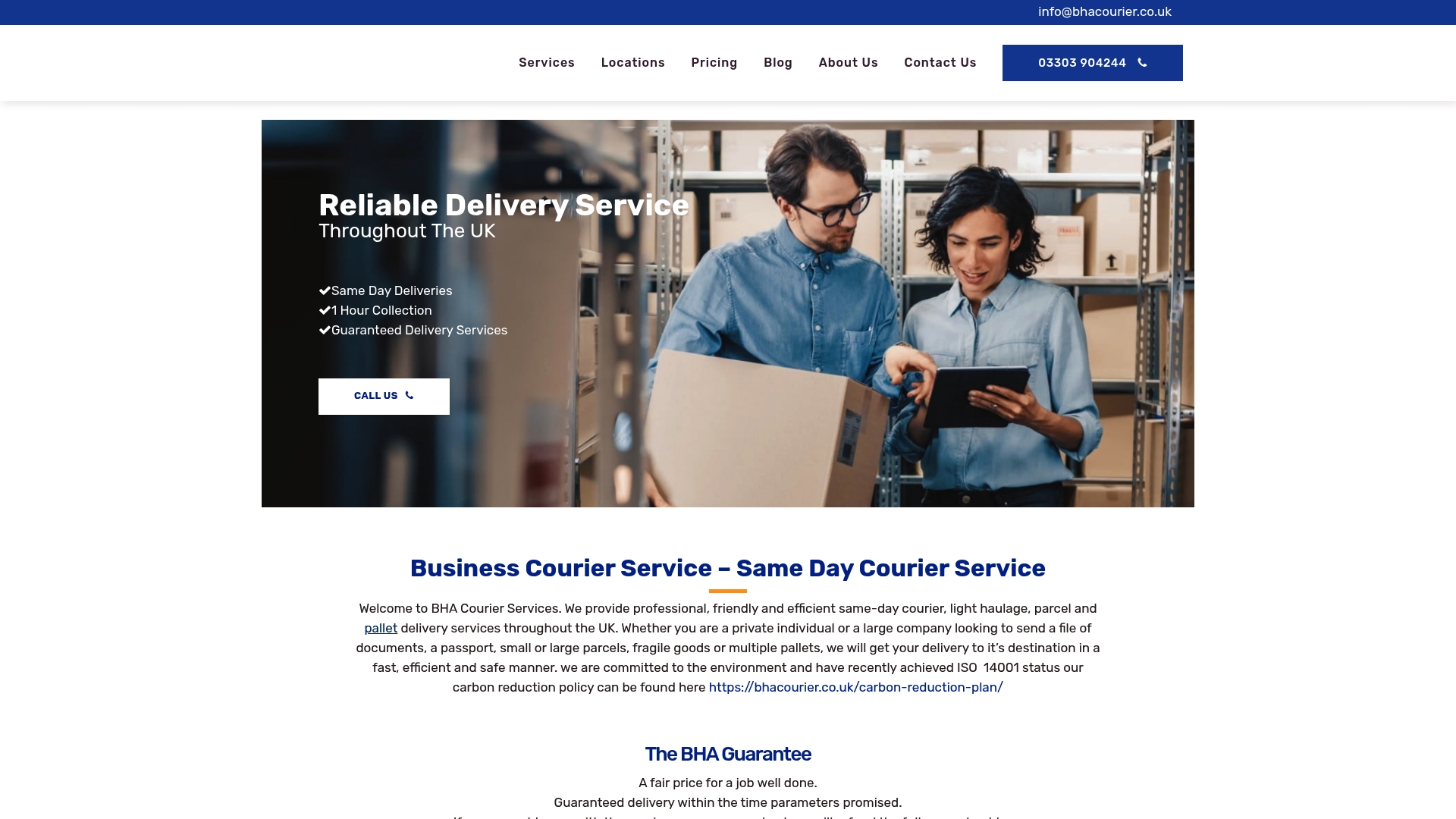
13 Aug Fleet Management Basics for UK Businesses and Individuals
Managing a fleet is more than just keeping vehicles on the road. Drivers and business owners alike are often surprised when they discover that UK companies can slash vehicle-related expenses by up to 30 percent simply by using smart fleet management strategies. The real edge though comes not from spending less, but from how data and emerging technology transform every trip into a smarter business move.
Table of Contents
- Understanding Fleet Management Essentials
- Key Benefits For UK Businesses And Individuals
- Critical Tools And Technologies In Fleet Management
- Practical Tips For Effective Fleet Operations
Quick Summary
| Takeaway | Explanation |
|---|---|
| Proactive vehicle maintenance reduces downtime | Regular inspections and maintenance plans prevent unexpected breakdowns, extending vehicle lifespan and minimizing operational disruptions. |
| Telematics enhances fuel efficiency | Real-time tracking and analysis of driving behaviour can lead to fuel savings of 5% to 20%, significantly impacting overall operational costs. |
| Data-driven management improves performance | Using advanced fleet management software allows for informed decisions on route optimization, driver training, and vehicle replacement, boosting productivity. |
| Strategic planning is vital for fleet success | Effective operational strategies should adapt to changing market conditions and promote efficient resource utilization while ensuring compliance with regulations. |
| Sustainability goals align with fleet practices | Implementing eco-friendly practices in fleet management helps reduce carbon emissions and can offer regulatory advantages, enhancing company reputation. |
Understanding Fleet Management Essentials
Fleet management is a critical operational strategy for businesses and individuals who rely on multiple vehicles to conduct their daily operations. At its core, fleet management basics involve the comprehensive coordination, tracking, and optimisation of a group of vehicles to ensure maximum efficiency, safety, and cost-effectiveness.
What Exactly is Fleet Management?
Fleet management encompasses a wide range of activities designed to manage vehicles, drivers, and associated operational processes. According to the UK government’s official guide, effective fleet management involves several key components including vehicle maintenance, driver safety, route planning, fuel management, and compliance with legal regulations.
Businesses across various sectors from logistics and transportation to service industries rely on robust fleet management strategies to control expenses, reduce risks, and improve overall operational performance. This approach goes beyond simply owning and operating vehicles it involves creating a systematic process that maximises the utility and performance of each vehicle in the fleet.
Core Components of Successful Fleet Management
Successful fleet management requires a multifaceted approach. Research from Informi highlights several critical elements that businesses must consider:
- Vehicle Maintenance: Regular inspections, servicing, and proactive repairs are essential to prevent unexpected breakdowns and extend vehicle lifespan.
- Driver Management: Implementing driver training programmes, monitoring driving behaviour, and ensuring compliance with safety regulations.
- Technology Integration: Utilising fleet management software and tracking systems to gather real-time data on vehicle performance, location, and efficiency.
Below is a summary table outlining the core components of successful fleet management, helping readers quickly review the main elements discussed:
| Core Component | Key Activities | Benefits |
|---|---|---|
| Vehicle Maintenance | Inspections, servicing, proactive repairs | Prevents breakdowns, extends lifespan |
| Driver Management | Training, monitoring, regulatory compliance | Safer driving, reduced risks |
| Technology Integration | Use of software and tracking systems for data gathering | Real-time insights, efficiency |
For UK businesses, understanding these fleet management basics is not just about operational efficiency but also about legal compliance and financial prudence. Modern fleet management increasingly relies on digital technologies that provide comprehensive insights into vehicle usage, maintenance needs, and potential areas for cost reduction.
Strategic Considerations for Fleet Optimization
Optimising a fleet requires a strategic approach that balances immediate operational needs with long-term business goals. This means continuously evaluating vehicle performance, assessing replacement cycles, and implementing technologies that can provide actionable insights.
Economic considerations play a significant role in fleet management. Businesses must carefully balance the costs of vehicle acquisition, maintenance, fuel consumption, and potential downtime. Advanced fleet management techniques now incorporate predictive analytics to forecast maintenance needs, identify potential issues before they become critical, and make data-driven decisions about vehicle investments.
For more insights into logistics and supply chain management, businesses can explore comprehensive strategies that complement their fleet management approach. By adopting a holistic view, organisations can transform fleet management from a mere operational necessity into a strategic advantage that drives efficiency and supports broader business objectives.
Key Benefits for UK Businesses and Individuals
Fleet management offers substantial advantages for businesses and individuals across various sectors, transforming operational efficiency and driving significant economic value. By implementing strategic fleet management practices, organisations can unlock numerous benefits that directly impact their bottom line and operational performance.
Cost Reduction and Financial Efficiency
One of the most compelling benefits of fleet management is its potential for substantial cost savings. According to research from the UK Department for Transport, businesses can reduce vehicle-related expenses by up to 20-30% through comprehensive fleet management strategies. These savings emerge from multiple areas including:
- Fuel Optimization: Advanced tracking systems help identify and eliminate inefficient routing and unnecessary vehicle usage.
- Maintenance Planning: Proactive maintenance schedules prevent costly unexpected breakdowns and extend vehicle lifespans.
- Insurance Cost Management: Improved driver monitoring and safety programmes can lead to reduced insurance premiums.
Enhanced Operational Performance and Productivity
Fleet management goes beyond mere cost control. Informi’s business research highlights that effective fleet management directly contributes to improved operational performance. By leveraging real-time data and advanced tracking technologies, businesses can:
- Streamline route planning and reduce unnecessary travel time
- Improve driver accountability and performance
- Enhance customer service through more accurate delivery estimates
- Implement data-driven decision-making processes
Strategic Sustainability and Compliance
Modern fleet management is increasingly aligned with broader sustainability goals. For businesses looking to reduce their environmental footprint, fleet management provides critical insights and opportunities. Green logistics strategies can help organisations minimise their carbon emissions, comply with environmental regulations, and demonstrate corporate responsibility.
Individuals and businesses can benefit from fleet management by:
- Reducing overall carbon emissions
- Implementing more environmentally friendly vehicle replacement strategies
- Tracking and reporting on environmental performance
- Potentially qualifying for green business incentives
Moreover, fleet management ensures rigorous compliance with UK transportation regulations. This includes maintaining vehicle safety standards, adhering to driver working hour restrictions, and keeping comprehensive records for potential regulatory inspections.
The strategic implementation of fleet management represents more than a mere operational tool. It is a comprehensive approach that delivers financial benefits, operational excellence, and contributes to broader organisational goals of efficiency, sustainability, and responsible business practices.
To clarify the specific advantages fleet management delivers to UK businesses and individuals, the following table organises the main operational and financial benefits mentioned:
| Benefit Area | How Fleet Management Delivers Value |
|---|---|
| Cost Reduction | Lowers expenses on fuel, maintenance, and insurance |
| Operational Performance | Optimises routes, boosts driver accountability, improves deliveries |
| Sustainability & Compliance | Supports emissions reductions, regulatory adherence, green incentives |

Critical Tools and Technologies in Fleet Management
In the rapidly evolving landscape of fleet management, technological innovations have revolutionised how businesses and individuals track, manage, and optimise their vehicle operations. Modern fleet management relies on a sophisticated array of digital tools and technologies that provide unprecedented insights and control over vehicle performance, driver behaviour, and overall operational efficiency.
Telematics and GPS Tracking Systems
Research from the U.S. Department of Energy’s Fleet Management Program highlights the critical role of telematics in modern fleet management. These advanced systems offer real-time tracking, route optimization, and comprehensive performance monitoring. According to their findings, telematics can help businesses reduce fuel consumption by 5% to 20% through improved driving behaviour and route planning.
Key features of modern telematics systems include:
- Real-time vehicle location tracking
- Detailed route analysis and optimization
- Driver behaviour monitoring
- Fuel consumption tracking
- Automated maintenance alerts
Advanced Fleet Management Software
Imperial College London’s Data Science Institute is at the forefront of developing sophisticated fleet management solutions. These software platforms integrate multiple data sources to provide comprehensive insights, including:
- Inventory level tracking
- Customer demand analysis
- Traffic condition monitoring
- Predictive maintenance scheduling
- Performance benchmarking
Modern fleet management software goes beyond simple tracking, offering predictive analytics that help businesses make data-driven decisions. These tools can anticipate maintenance needs, optimize routing, and identify potential cost-saving opportunities across the entire fleet operation.
Emerging Technologies and Future Innovations
The future of fleet management is being shaped by cutting-edge technologies that promise even greater efficiency and control. Explore our insights into delivery performance metrics to understand how these innovations are transforming business operations.
Emerging technologies currently making waves in fleet management include:
- Artificial Intelligence (AI) powered predictive maintenance
- Internet of Things (IoT) connected vehicle systems
- Advanced driver assistance systems (ADAS)
- Electric and autonomous vehicle integration
- Blockchain-based tracking and verification systems
The integration of these technologies represents a significant leap forward in fleet management capabilities. Businesses can now access unprecedented levels of detail about their vehicle operations, from individual driver performance to complex fleet-wide optimization strategies.
As technology continues to evolve, the most successful businesses will be those that embrace these innovative tools, transforming fleet management from a reactive operational function to a proactive, strategic advantage. The ability to collect, analyse, and act on real-time data is becoming a critical competitive differentiator in today’s fast-paced business environment.
Practical Tips for Effective Fleet Operations
Effective fleet operations require a strategic approach that combines technological insight, operational planning, and continuous improvement. For UK businesses and individuals managing vehicle fleets, implementing practical strategies can significantly enhance performance, reduce costs, and ensure regulatory compliance.
Comprehensive Vehicle Maintenance Strategies
Research from the U.S. Department of Transportation’s National Transportation Library emphasizes the critical importance of proactive maintenance in fleet management. Developing a robust maintenance programme involves several key considerations:
- Preventative Maintenance Scheduling: Implement regular, systematic vehicle inspections and servicing
- Detailed Record Keeping: Maintain comprehensive maintenance logs for each vehicle
- Early Problem Detection: Use telematics and diagnostic tools to identify potential issues before they become critical
Businesses should establish a standardised maintenance protocol that includes routine checks, immediate repairs, and systematic vehicle replacement strategies. This approach not only reduces unexpected breakdowns but also extends the overall lifespan of fleet vehicles.
Driver Management and Performance Optimization
Drivers are the most critical human element in fleet operations. Effective management involves:
- Comprehensive driver training programmes
- Regular performance evaluations
- Implementation of safety protocols
- Incentive systems for efficient and safe driving
- Continuous skills development
Utilising advanced telematics can provide invaluable insights into driver behaviour, allowing managers to identify areas for improvement and recognize exceptional performance. This data-driven approach enables targeted training and performance enhancement.

Strategic Operational Planning
Successful fleet management requires a holistic approach to operational planning. Learn more about streamlining supply chain strategies to complement your fleet management approach. Key strategic considerations include:
- Optimal route planning to minimize fuel consumption
- Efficient vehicle utilization
- Real-time tracking and performance monitoring
- Adaptive scheduling
- Cost-effective vehicle procurement and replacement strategies
Businesses should develop flexible operational models that can quickly adapt to changing market conditions. This might involve maintaining a mix of vehicle types, implementing hybrid or electric vehicles, and continuously evaluating the fleet’s overall efficiency.
Technology plays a crucial role in modern fleet operations. Investing in comprehensive fleet management software can provide real-time insights, predictive maintenance alerts, and detailed performance analytics. These tools enable businesses to make data-driven decisions, optimize resources, and maintain a competitive edge.
Ultimately, effective fleet operations are about creating a dynamic, responsive system that balances technological innovation, human expertise, and strategic planning. By adopting a comprehensive approach that integrates advanced tools, continuous training, and proactive management, businesses can transform their fleet operations from a basic operational necessity to a strategic advantage.
Frequently Asked Questions
What is fleet management?
Fleet management involves the comprehensive coordination, tracking, and optimisation of a group of vehicles to ensure maximum efficiency, safety, and cost-effectiveness. It encompasses activities like vehicle maintenance, driver safety, route planning, fuel management, and compliance with regulations.
How can fleet management save costs for UK businesses?
Effective fleet management can reduce vehicle-related expenses by up to 30% through strategies such as fuel optimisation, preventative maintenance planning, and improved driver monitoring, which can lead to lower insurance premiums.
What technologies are critical for successful fleet management?
Key technologies in fleet management include telematics and GPS tracking systems for real-time vehicle monitoring, advanced fleet management software for data analysis and predictive maintenance, and emerging innovations like AI and IoT for enhanced operational efficiency.
What are the benefits of using telematics in fleet management?
Telematics offers benefits such as real-time location tracking, vehicle performance monitoring, driving behaviour analysis, and fuel consumption tracking, which can lead to improved efficiency and significant cost savings on fuel and maintenance.
Ready to Transform Your Fleet Management Experience?
Managing a fleet in the UK means facing pressure to cut costs, prevent delays and adapt to strict industry standards. As shown throughout this article, challenges such as keeping up with proactive maintenance, ensuring on-time deliveries and meeting compliance goals can become overwhelming. Reliable support is crucial when every mile, minute and margin matters. If you want complete peace of mind for urgent deliveries and fragile items, it is time to work with a specialist trusted by businesses and individuals across Britain.

Let BHA Courier show you how seamless fleet support can be. We blend same-day and guaranteed next-day courier services with advanced tracking and a nationwide network to keep your business efficient and your customers satisfied. Our secure delivery solutions take the stress out of time-critical operations. Need to book a delivery or learn how our expertise helps you stay compliant and competitive? Visit BHA Courier now and put your fleet challenges behind you.
Recommended
- Green Logistics Strategies for UK Businesses in 2025 – BHA Couriers
- What Is Logistics Management? Guide for UK Businesses 2025 – BHA Couriers
- New Trends in Logistics: What UK Businesses Need to Know in 2025 – BHA Couriers
- Health and Safety in Logistics: Essential Guide for UK Businesses 2025 – BHA Couriers
- Government Fleet Management: Best Practices and GPS Solutions 2025


